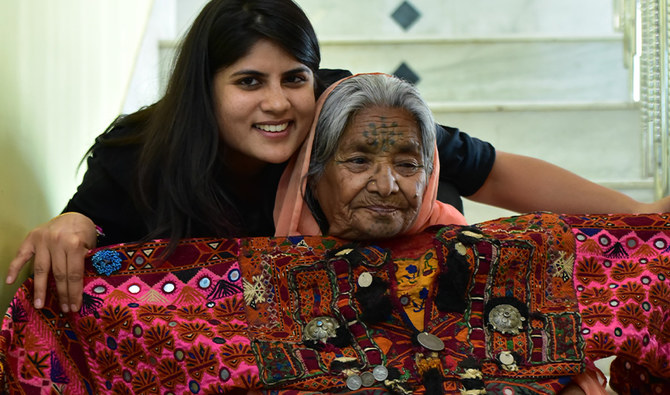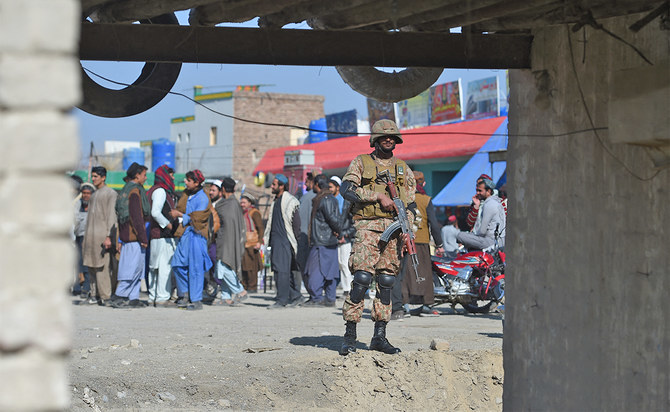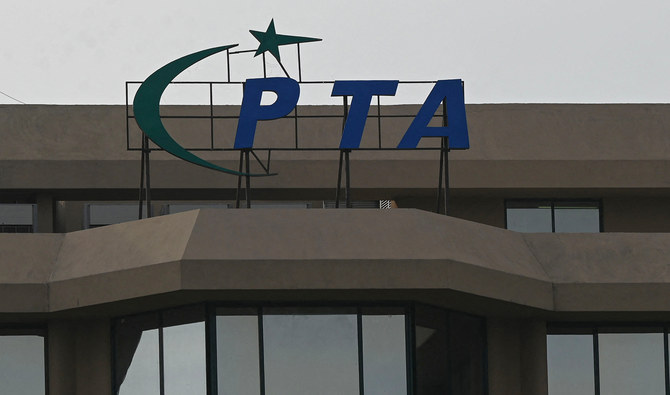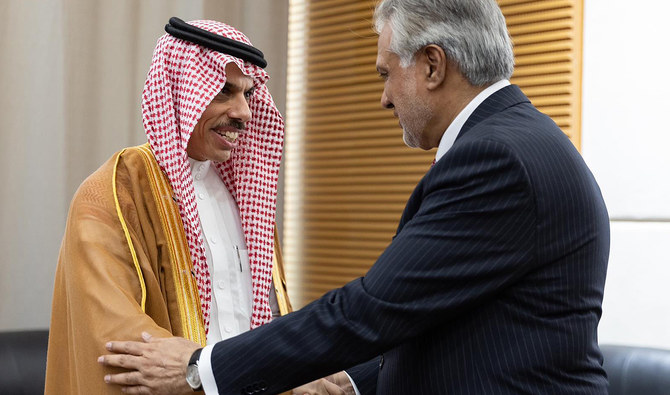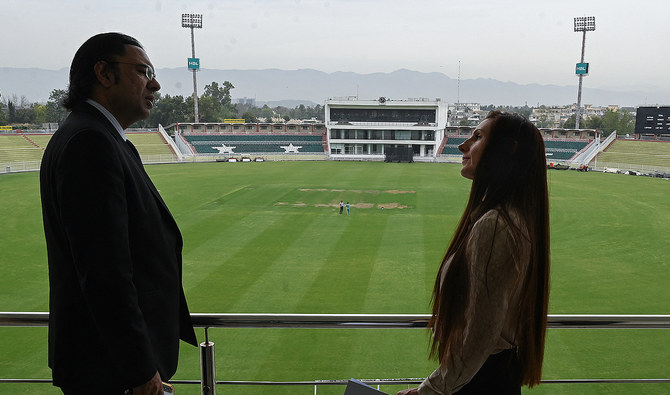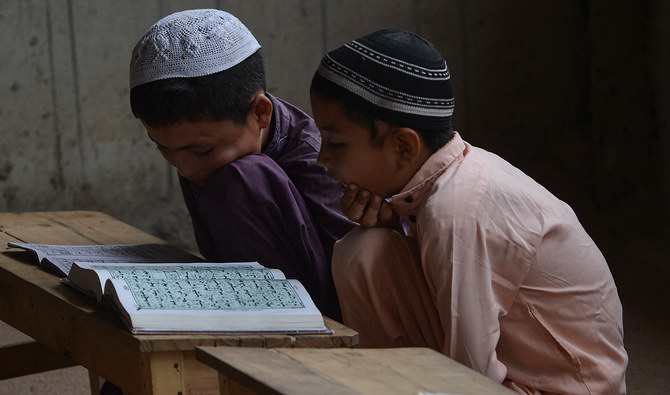KARACHI: For more than 70 years, locked up mud shops lining a street in Pakistan’s southwest Balochistan province have stood the test of time as monuments to one small town’s extraordinary Hindu-Muslim brotherhood.
The Pashtun community of Mekhtar, where a little over a thousand families reside off a main national highway, was once a tight-knit small town where people of the two faiths lived side by side.
During the violent partition of the Indian subcontinent in 1947, the Hindu families of Mekhtar were forced to migrate to Jaipur across the border, where they formed a tiny community of 400 Pashtun Hindus with a very distinct culture.

Old mud shops that belonged to Hindu Pashtuns in Mekhtar's Hindu Bazaar before 1947. The properties have remained preserved and unopened for over 70 years as a symbol of interfaith harmony. June 26, 2020 (AN Photo by Shadi Khan Kakar)
But in all these years, the dozens of shops they left behind have never been opened again-- preserved exactly as they were left by their owners seven decades ago.
“When our Hindu friends were leaving us [after partition] they handed the keys of their shops to us,” Malik Hajji Paio Khan Kakar, a 95 year old resident of Mekhtar told Arab News.
The keys were never used, he said, and the properties sit as though lying in wait for their rightful owners to return.
The town’s integrity is an anomaly in the history of the partition, where land grabbings of abandoned property were common in the absence of formal registrars after the two new countries were carved out and millions were forced to hastily flee their homes.

In this undated photo, a Pashtun Hindu woman in Jaipur shows off the blue tattoos distinctive of the Hindu Pashtun community. (Photo Courtesy: Shilpi Shilpi Batra Adwani)
Just before the Hindus of Mekhtar migrated to Jaipur, Kakar said they stayed as guests in the homes of their Muslim friends for several nights before finding safe passage across.
“It was like one’s brother was leaving,” Kakar reminisced.
The meat-eating Hindu Pashtuns are a little known tribe in India even today, with a distinct culture carried forward from Afghanistan and Balochistan which includes blue tattoos on the faces of the women, traditional Pashtun dancing and clothes heavily adorned with coins and embroidery.
“It was lovely to hear that the people of Mekhtar still remember us and have taken care of the shops as a token of love,” Shilpi Batra Adwani, a documentary filmmaker from a Pashtun Hindu family in Jaipur, told Arab News.
Her grandmother, who she calls Babai, migrated from the town during the partition.
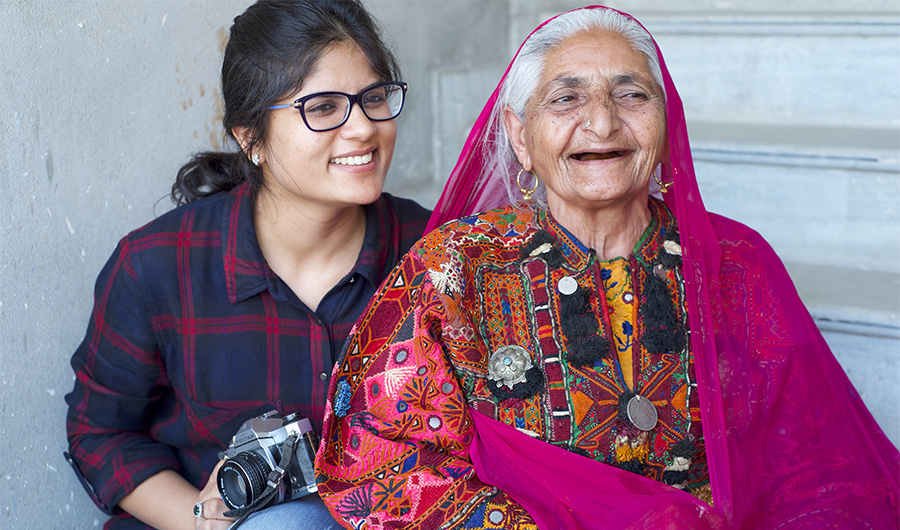
Indian filmmaker Shilpi Batra Adwani with a Hindu Pashtun migrant woman. They pose with traditional Pashtun clothes. (Photo Courtesy: Shilpi Shilpi Batra Adwani)
Shilpi told Arab News that elderly members of Jaipur’s Pashtun Hindu community still sat together and spoke about the ‘golden period’ of harmony and love they had left behind in Mekhtar.
They still speak Pashto, she said, and remained fiercely proud of the culture they had brought with them to Jaipur-- though acceptance had not always come easy.
“Because the women had tattoos, people in India used to be curious looking at them. Some found them exotic and some found them questionable,” Shilpi said.
“They would spend most of their time at their homes, remembering their lovely past times.”
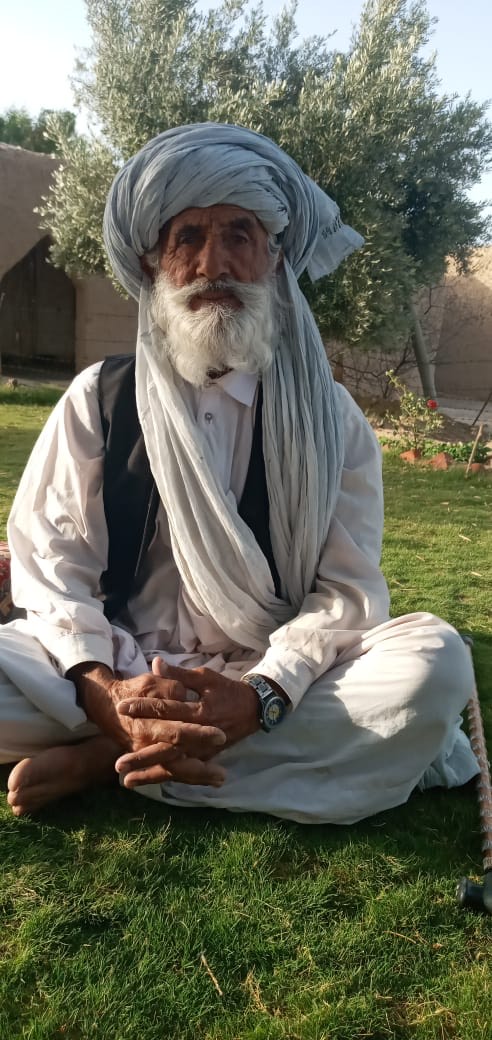
Malik Haji Paio Khan Kakar, a 95 year old resident of Mekhtar, Balochistan, is interviewed for Arab News. June 26, 2020 (AN Photo by Shadi Khan Kakar)
Shilpi, who made a documentary about the roots of India’s Hindu Pashtuns last year, interviewed several women in her community about the days of the partition.
From them she discovered that the Muslims of Mekhtar had come to the railway station to bid them farewell on the day they had left, with ghee and gifts of food for their long journey.
“Together, they would do embroidery, together eat their meals and together do Attan [Pashtun folk dance]. No one would feel like they belonged to a different faith,” Shilpi said, recounting stories from her grandmother.
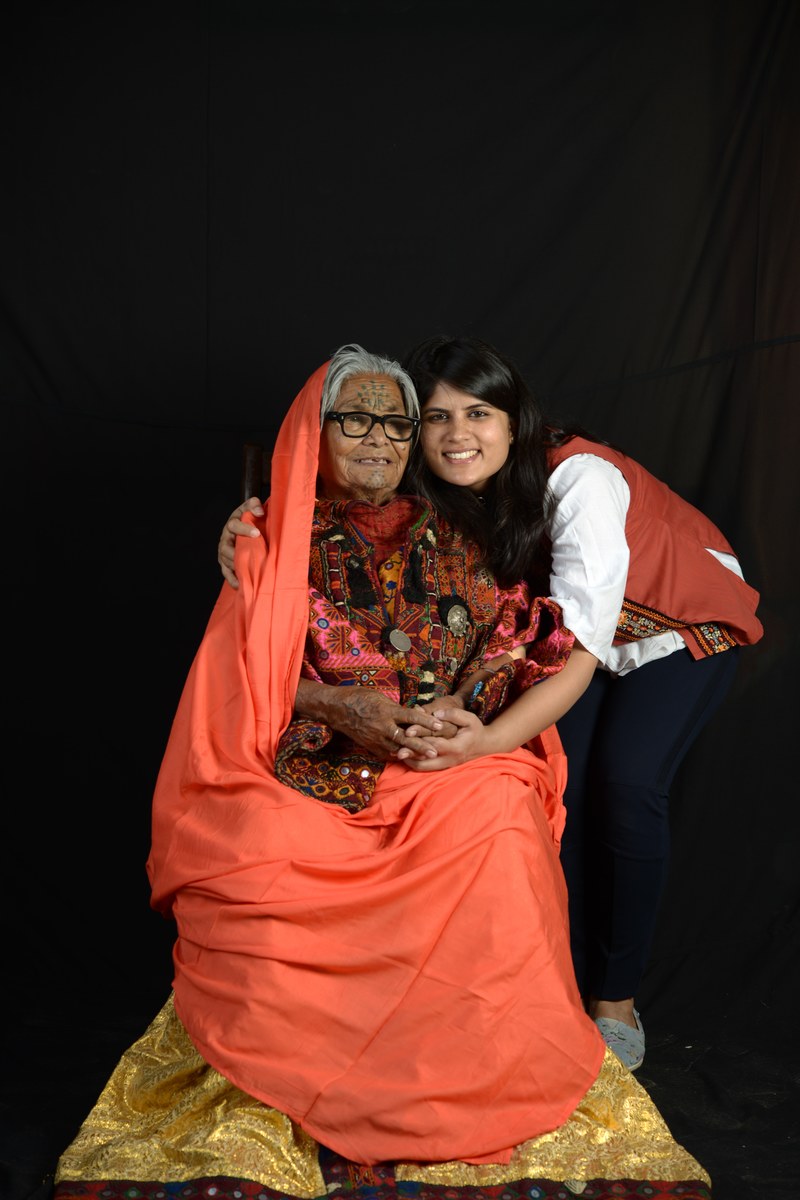
Indian filmmaker Shilpi Batra Adwani with a Hindu Pashtun migrant woman. They pose with traditional Pashtun clothes. (Photo Courtesy: Shilpi Shilpi Batra Adwani)
The film-maker told many other stories-- of one Hindu Pashtun who fell in love with a Muslim woman from Mekhtar and stayed behind, and of old trunks of Pashtun clothes lovingly restored and worn tearfully by the last remaining generation of the partition.
Even 73 years on, Shilpi said, Mekhtar still lived on in the memories of those who had left behind their ancestral homes and shops.
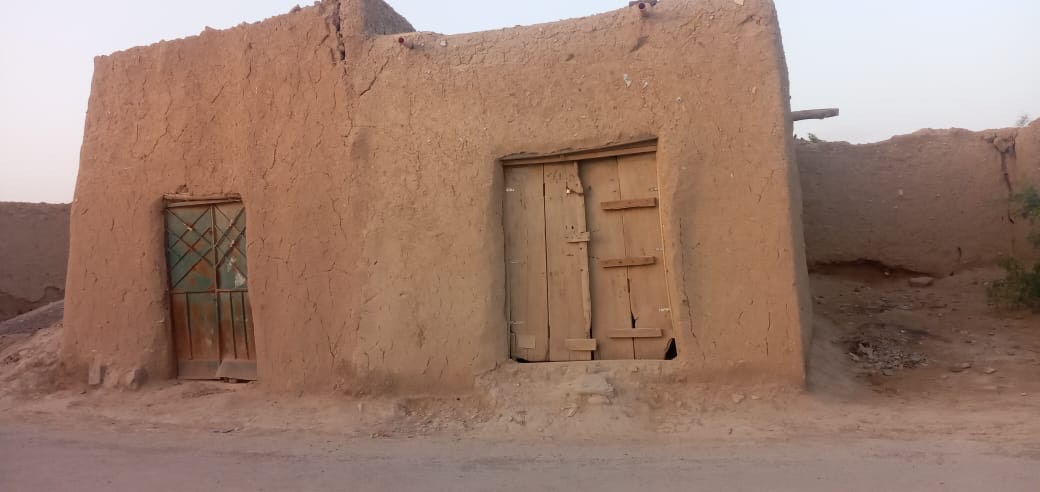
Old mud shops that belonged to Hindu Pashtuns in Mekhtar's Hindu Bazaar before 1947. The properties have remained preserved and unopened for over 70 years as a symbol of interfaith harmony. June 26, 2020 (AN Photo by Shadi Khan Kakar)
Across the border in Mekhtar, Kakar too reminisced about meeting his old friends one more time.
“My health and finances don’t allow me to travel, but if they could come here... that would be great,” he smiled.
“Then maybe once more, we could sit here. All together.”



